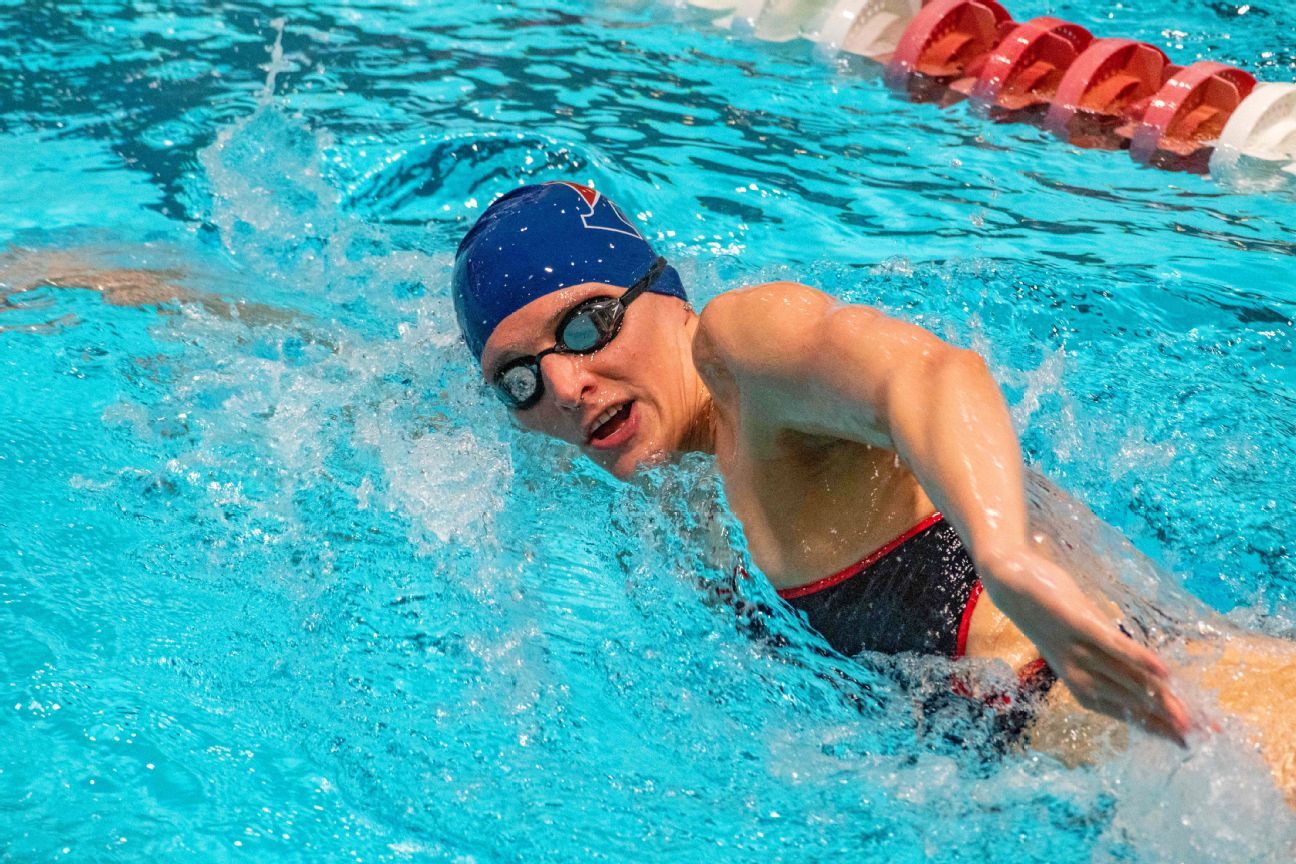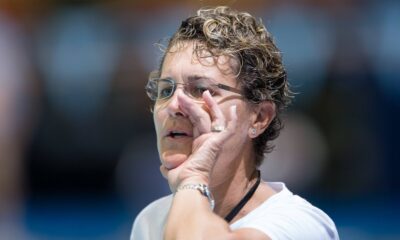
Two months after becoming the first transgender athlete to win the NCAA Division I National Championship, former University of Pennsylvania swimmer Lia Thomas said in an exclusive interview with ABC News and ESPN during the 2021-22 season. I pushed back some of the criticisms I received.
Thomas, who rejected all interview requests at the NCAA Swimming and Diving Championships in Atlanta in March, found himself at the center of a national debate about who would participate in women’s sports. ..
“I think the biggest misunderstanding is why I moved,” said Thomas. “People will say,’Oh, she’s just moved to her advantage so she can win.’ I’ve moved to be happy and loyal to myself. . “
Thomas joined the women’s team after three seasons of swimming in the men’s swimming team at the University of Pennsylvania, after a gap year, and after the Ivy League canceled the 2020-21 season of all sports for the COVID-19 pandemic.
After performing at Zippy Invitational in Akron, Ohio in December 2021, she made a national headline by setting the fastest time in the country with 200 and 500 yards of freestyle. .. At the NCAA Swimming and Diving Championships in March, Thomas won 500 freestyles and finished 5th and 8th in 200 and 100 freestyles, respectively.
Her participation and success has garnered criticism from some teammates, athletes and other members of the swimming community, including former Kentucky swimmer Riley Gaines, who placed Thomas in fifth place at 200.
“What are we trying to protect?” Gaines said in an interview with ABC’s “Nightline.” “If our priority is fairness, which should be a sport, why do we completely ignore it for one or a few people?”
Thomas’s name was called by state legislatures across the country to introduce legislators designed to limit the ability of transgender athletes to compete in sports, sometimes affecting athletes starting in elementary school. I did. They said the bill was needed to protect the sacredness of women’s sports.
Thomas told ESPN she wouldn’t buy it.
“Trans women competing in women’s sports do not threaten women’s sports as a whole,” said Thomas. “Trans women are a very small number of all athletes. The NCAA rules for trans women competing in women’s sports have been around for over a decade, and there is no large wave dominated by trans women. It was. “
Thomas said he started hormone therapy in May 2019 after his sophomore year. Thomas said she experienced gender identity and stress on her mental health. And it made her medically transitional. At that time, she said she thought her swimming career was over.
Prior to Thomas’ senior season, the NCAA required transgender women to receive 12 months of hormone therapy to qualify for competition in the women’s category. When Thomas began his senior season in November 2021, she had been on hormone therapy for 30 months.
In January, the NCAA announced a policy change, stating that it would rely on the policies of the national governing body of each sport to determine eligibility. USA Swimming announced a policy updated on February 1, 2022. This required 36 months of testosterone suppression and a three-panel evaluation of transgender women’s eligibility, but NCAA did not adopt that policy for the 2022 swimming and diving championships. .. Instead, the NCAA required compliance with previous policies and demonstration of testosterone levels of less than 10 nanomoles per liter.
Still, some Thomas critics argue that her participation robs cisgender women of the opportunity.
“We are always looking for a win-win solution,” Nancy Hogshead-McCarl, three-time Olympic swimming gold medalist and founder of Champion Women, told ESPN in March. “But when it comes to including transgender women in the women’s category, we need to prioritize the fairness of biological women in sports. The category that makes up half of the world’s population is worth defending. For the first time, transgender men and women, a way to respect all the differences and not harm biological women. “
However, Thomas said he believes that there is no viable option in a neutral position, at least in swimming.
“For example, if you can compete, but you can’t score or you’re in extra lane 9, that’s very different for the trance people,” said Thomas. “And it doesn’t offer them the same level of respect and opportunity to play and compete.”
What’s more, she said it’s essential to remember that transgender women are women.
“It’s the same as a Sith woman who spotlights travel teams and scholarships. It’s part of the athletics where people are competing with each other. It’s not about robbing Sith women of opportunities. Women are women, so it is still women who have the scholarships and opportunities. “
Thomas graduated from Penn earlier this month and plans to attend law school in the fall. She will focus on civil rights and public interest law.
“I’ve seen such hatred attacks on trance rights through the law, but fighting for trance rights and trance equality is what I’m much more passionate about and want to pursue. “She said.
Even after all the criticisms she received, Thomas paused when she was asked if she would try it again.
“I would say so. I was able to play my favorite sport as my true self.”















